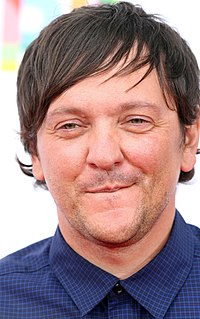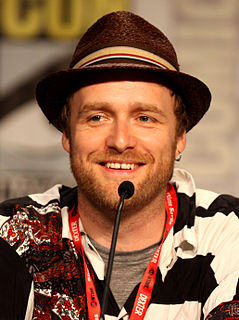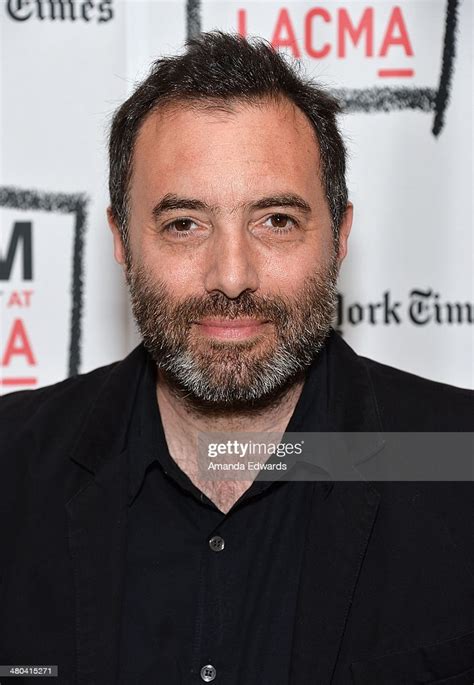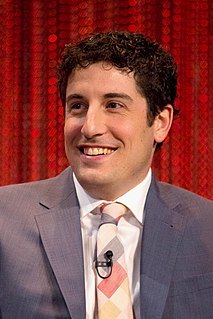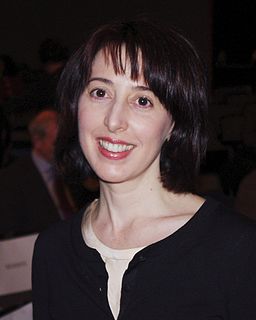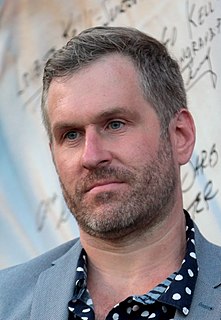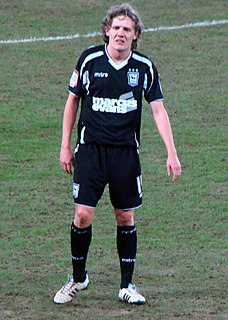A Quote by Chris Lilley
I think sometimes people become quite emotional about the characters as well, and that's pretty cool that you can get that emotion out of people. And I think that's more my motivation than like, "Hey I want to be the funny guy, I want to be that famous funny guy." That doesn't sit as well with me as the idea of taking people on this ride and taking them into the illusion of the characters. That's much more exciting for me.
Related Quotes
I would say plotting is the most difficult thing for me. Characterization is only hard because sometimes I feel I get so interested in it that I want to talk too much about the characters and that slows the story down. So I say, "Hey, people want to find out what's going to happen next, they don't want to listen to you spout off about this or that person." But I think even the bad guy deserves to tell his side of the story.
I think it's more fun to grow to love characters who are flawed than it is to present perfect characters. Perfect characters aren't very funny. Certainly my friends are a strange, intense bunch of people, and people's families drive them crazy, but challenging relationships are always more rewarding.
I think people are a mixture of everything. I like desperate characters because they do things that most of us normally wouldn't do. If a character is a scoundrel or a liar you think you know them, but then I can bring some emotion to them and they become much fuller than you ever imagined. So what I try to do is have a story where you don't quite know where it's going, and characters who you don't quite know where they're going.
I think there's a lack of really, really good funny scripts out there that work on all the levels that they're supposed to - which is to say that they're not just funny but they have interesting characters that people are going to like and be invested in. I've done a bunch of movies that haven't worked but I like to think I've done some that have worked and that's because not only is the comedy there but the characters and storylines are interesting. The characters are real and relateable and people were invested in them.
What intrigues me is that people kind of naturally want to label or pigeonhole the characters. They want to make it easy for themselves to go, "All right. There's the good guy, there's the bad guy, there's the girl. Okay, I get it now." But life isn't one-dimensional. The world isn't simply divided into good versus evil. I think we're all capable of both. So any time the hero does something I'm not crazy about, or the bad guy does something I can relate to, I'll find it more interesting.
I'm not really interested in playing famous people. I prefer to create characters. And I hope I have an exciting enough life that somebody might make a movie about that one day. I don't want to make movies about other people. I was once approached about playing Salvador Dali, which I thought would've been fun until I found out that he was proud of kicking a blind man across the street. So, I decided, I didn't want to play that guy. So, I think I'll just keep it the way it is.
I'm talking about people who claim to love people. I'm talking about people who claim to love and represent the little guy. They're the people that tell us that if not for them, the little guy would be trampled on daily. Well, if they really cared about the little guy, if they really cared about the little guy, and want the little guy to have an improved life, more contentment, more happiness, then the United States is what you would emulate. You certainly wouldn't tear it down.
It's funny what [producer Richard Zanuck said about even though you can't quite place when the book or the story came into your life, and I do vaguely remember roughly five years old reading versions of Alice in Wonderland, but the thing is the characters. You always know the characters. Everyone knows the characters and they're very well-defined characters, which I always thought was fascinating. Most people who haven't read the book definitely know the characters and reference them.
The only good teachers for you are those friends who love you, who think you are interesting, or very important, or wonderfully funny; whose attitude is: "Tell me more. Tell me all you can. I want to understand more about everything you feel and know and all the changes inside and out of you. Let more come out." And if you have no such friend,--and you want to write,--well, then you must imagine one.
I'm an optimistic guy.It's just as much the case that people will come to me and ask my opinion about how to properly include the Muslim community, as it is that people will come with some hateful stuff too. When people come to me about my religion, it's not always a thing of "we don't want people like you here," which happens sometimes. But mostly it's people who would like to know more. I get a chance to help people understand the religion better.
I don't particularly care about having [my characters] talk realistically, that doesn't mean very much to me. Actually, a lot of people speak more articulately than some critics think, but before the 20th century it really didn't occur to many writers that their language had to be the language of everyday speech. When Wordsworth first considered that in poetry, it was considered very much of a shocker. And although I'm delighted to have things in ordinary speech, it's not what I'm trying to perform myself at all: I want my characters to get their ideas across, and I want them to be articulate.
